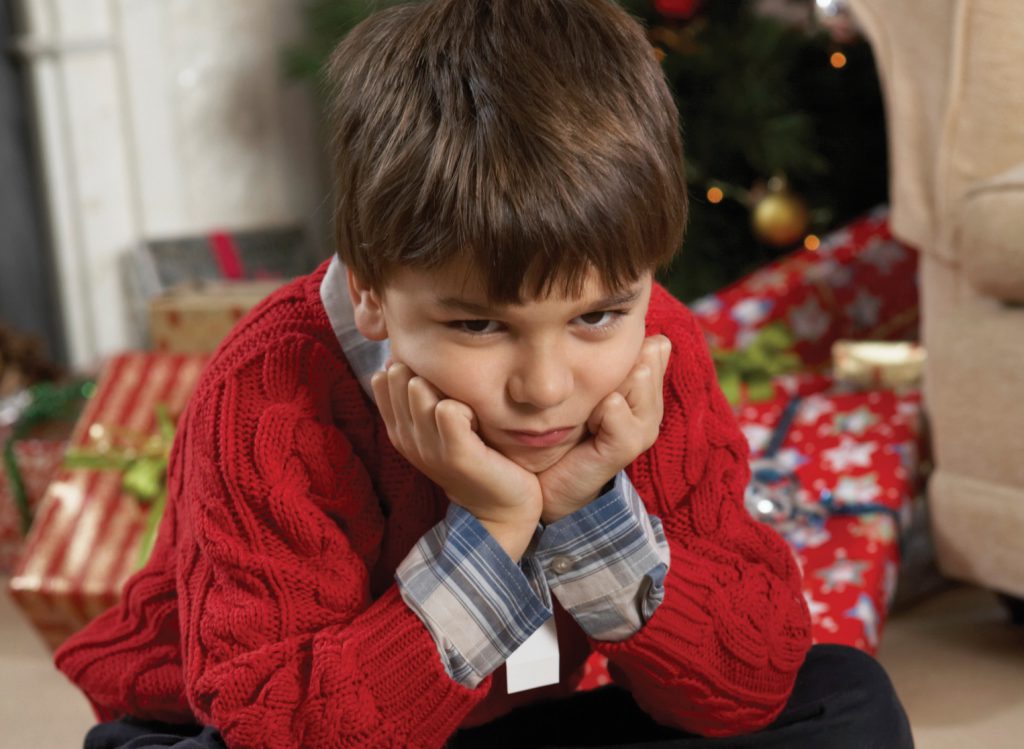As much as we teach our kids that Jesus is the true meaning of Christmas, there’s just no avoiding the emotions that come with stuff at the holidays. Talk about watching and wondering and waiting! Television commercials. Shopping trips. Christmas lists. And, whenever there is stuff involved, there’s always the potential to quibble about who got what/more/better. Here are five tips to help your children (and you) cope with holiday jealousy.
Fair versus Equal
When considering Christmas gifts for kids, many parents focus on the gifts’ dollar value. Parents often believe that children need to be treated equally when, in reality, considering the unique interests and attributes of each child is often the best approach. If your limit is $25 for gifts, the iTunes gift card for your teenager versus the same amount spent on toys for your 2-year-old is going to make the teenager perceive that the younger child got more. Of course, it’s important to be equitable, but it’s also important to think about what our kids want as well as how they’ll feel.
Make your process clear
Often, communication can go a long way toward tamping down jealousy. If, as parents, we are genuinely thinking about our kids, there will be reasons and motivations for gifts. As a child opens a gift, try talking about why that gift is special to that child. Help them (and those around them) to see beyond the perceived value of a gift and why what they’ve received is special.
Set boundaries
Emotions like jealousy are hard to mandate. But parents often fail to outline their expectations ahead of time for how kids should behave. Prepping children — especially very young children who have a difficult time grasping the concept of sharing — for what kinds of responses you expect in gift-receiving situations can help them transition and manage any disappointment they may feel in the moment. If jealousy comes out, better it come out later in a healthy conversation rather than at Grandma’s around the Christmas tree.
The attitude of gratitude
Advent is a perfect season to encourage children to be grateful for what they have. Take a few minutes every day to count your blessings as a family. Ask your children to think of as many things for which they are grateful as the date on the family Advent calendar. Helping children be aware of the blessings God has given them can help them learn to be grateful for even the smallest things in their lives.
Enjoy their gifts with them
For those with teenagers, this one may be easier said than done. But children enjoy nothing more than you playing or reading or watching or doing with them. None of us are too old to learn how to play that console video game. We aren’t too irrelevant to take time to learn the lyrics to a song from the latest boy band. The best gifts are those we share with our kids. Show your children you care beyond the gift receipt.



